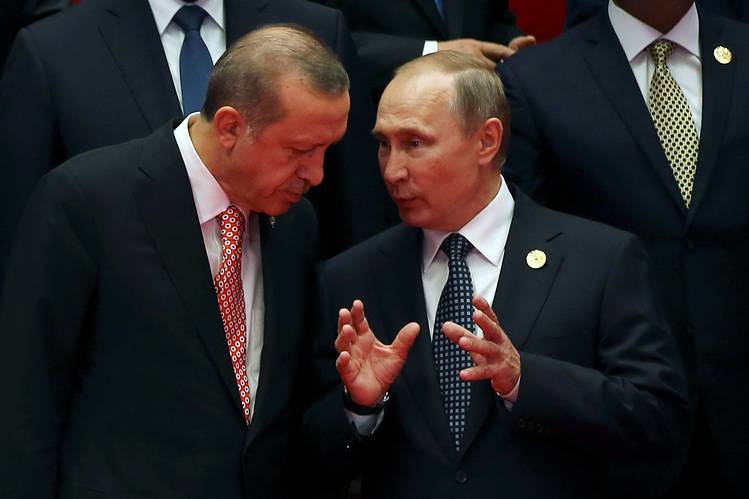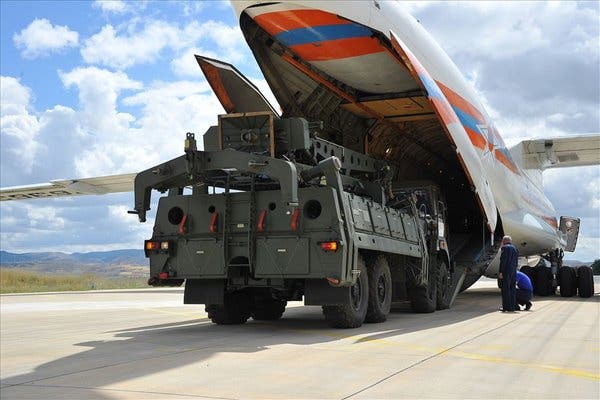
Istanbul: In what could lead to a NATO ally of US breaking off from the military grouping, Turkey received the first batch of Russia’s S-400 missile defence system Friday despite repeated warnings from United States against the purchase.
“The delivery of the first shipment of parts of the S-400 long range regional air missile defence system began as of July 12, 2019 to Murted air base in Ankara,” the ministry said in a statement.
Meanwhile, giving a further boost to defence cooperation between Turkey and Russia, the CEO of the Russian State Corporation Rostec – Sergey Chemezov said “If our Turkish colleagues express a desire, we are ready to work out the deliveries of Su-35 fighter jets,” clearly upping the ante for defence relations.
The delivery, which was made by plane, is likely to escalate tensions with the US after Washington warned this week that there would be “real and negative” consequences if Ankara bought the Russian defence system.

The US State Department has said that Turkish officials are fully aware of the Countering America’s Adversaries Through Sanctions Act, a law passed by Congress in 2017 that mandates sanctions for any “significant” purchases of weapons from Russia.
Washington has threatened to remove Turkey from its F-35 fighter jet programme, giving Ankara until July 31 to cancel the S-400 purchase or have its pilots kicked off the training course and expelled from the US.
But Turkish President Recep Tayyip Erdogan said after meeting US counterpart Donald Trump last month that he was confident Ankara would not face sanctions for buying the Russian missile system.
The system is designed to shoot down the most advanced North Atlantic Treaty Organisation airplanes, making it an odd purchase for a nation that has been a NATO member since 1952 and is a partner in the manufacture of F-35 stealth fighters. It’s the most decisive sign yet that Turkey has stopped looking West for self-definition.
Turkey’s long wait for Europe’s reciprocal embrace, ever since it became a member of the Council for Europe in 1949, NATO in 1952, applied for EU membership in 1987, and agreed to a customs union in 1995, hasn’t resulted in it’s entry to the club. While former Warsaw Pact nations jumped the accession queue, surprisingly conversation regarding Turkey’s induction took the back seat.
Turkey’s exit from NATO would become a reality, in case of war gets started between US and Iran. Moreover, it would compel Turkey to make a choice and confirm its identity either as a West Asian country with a small foothold in Europe or as a European nation having large presence in Asia.








